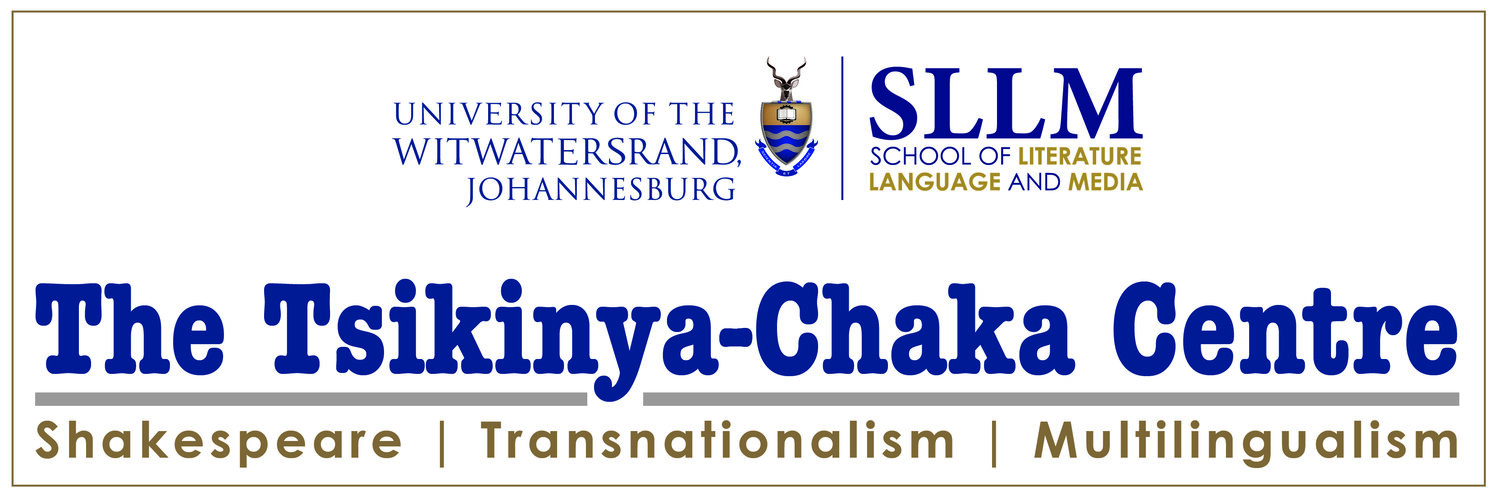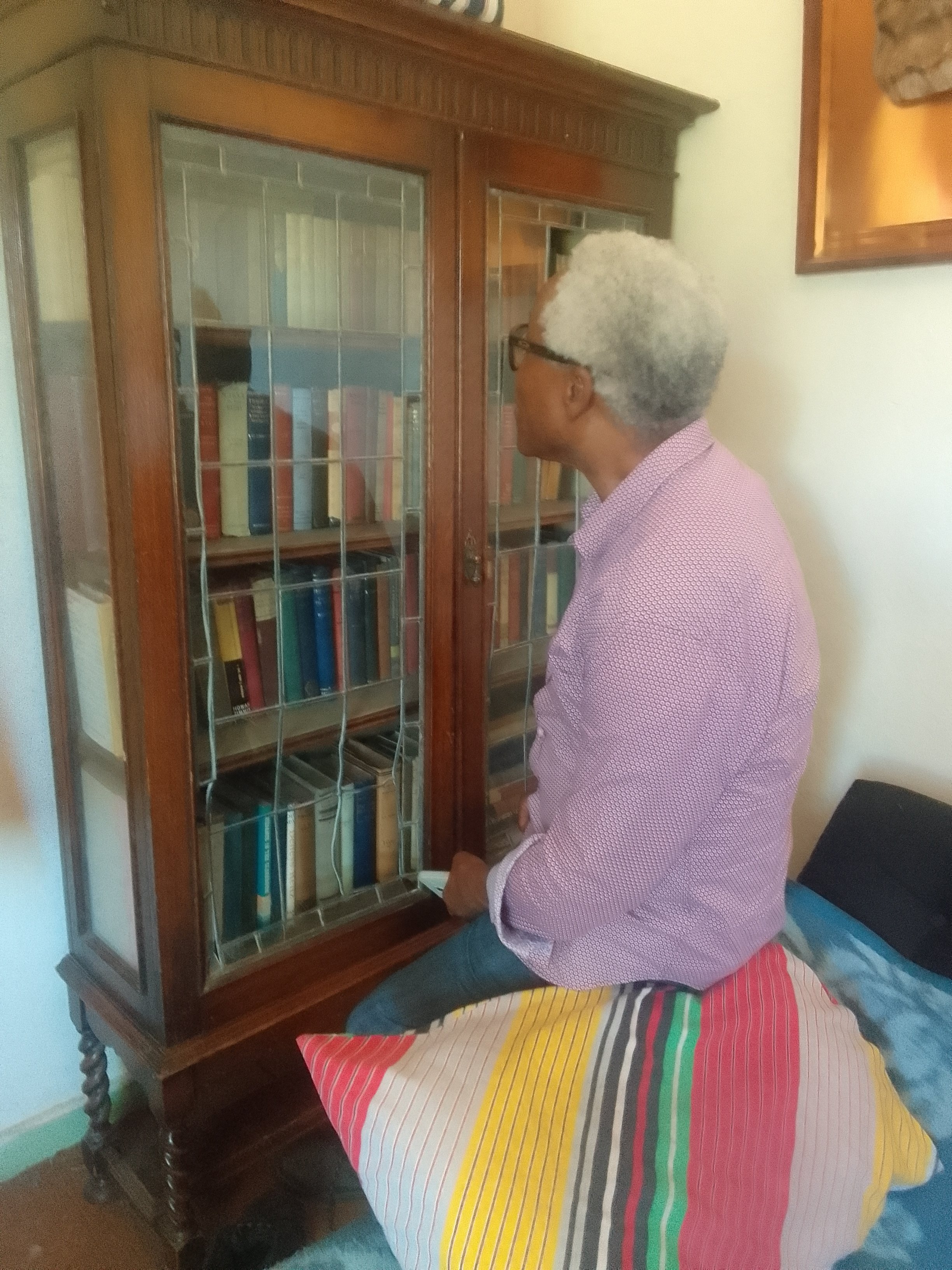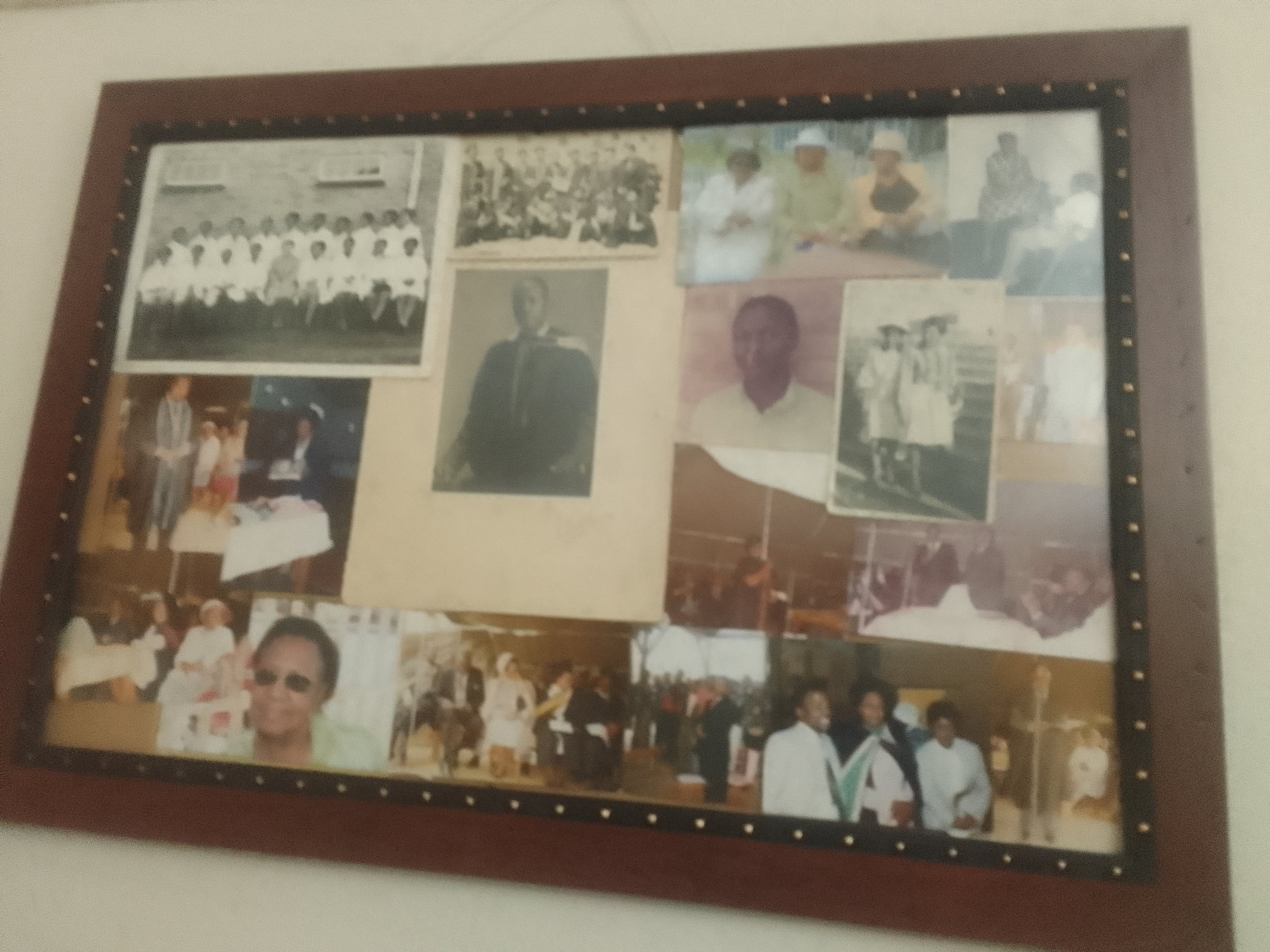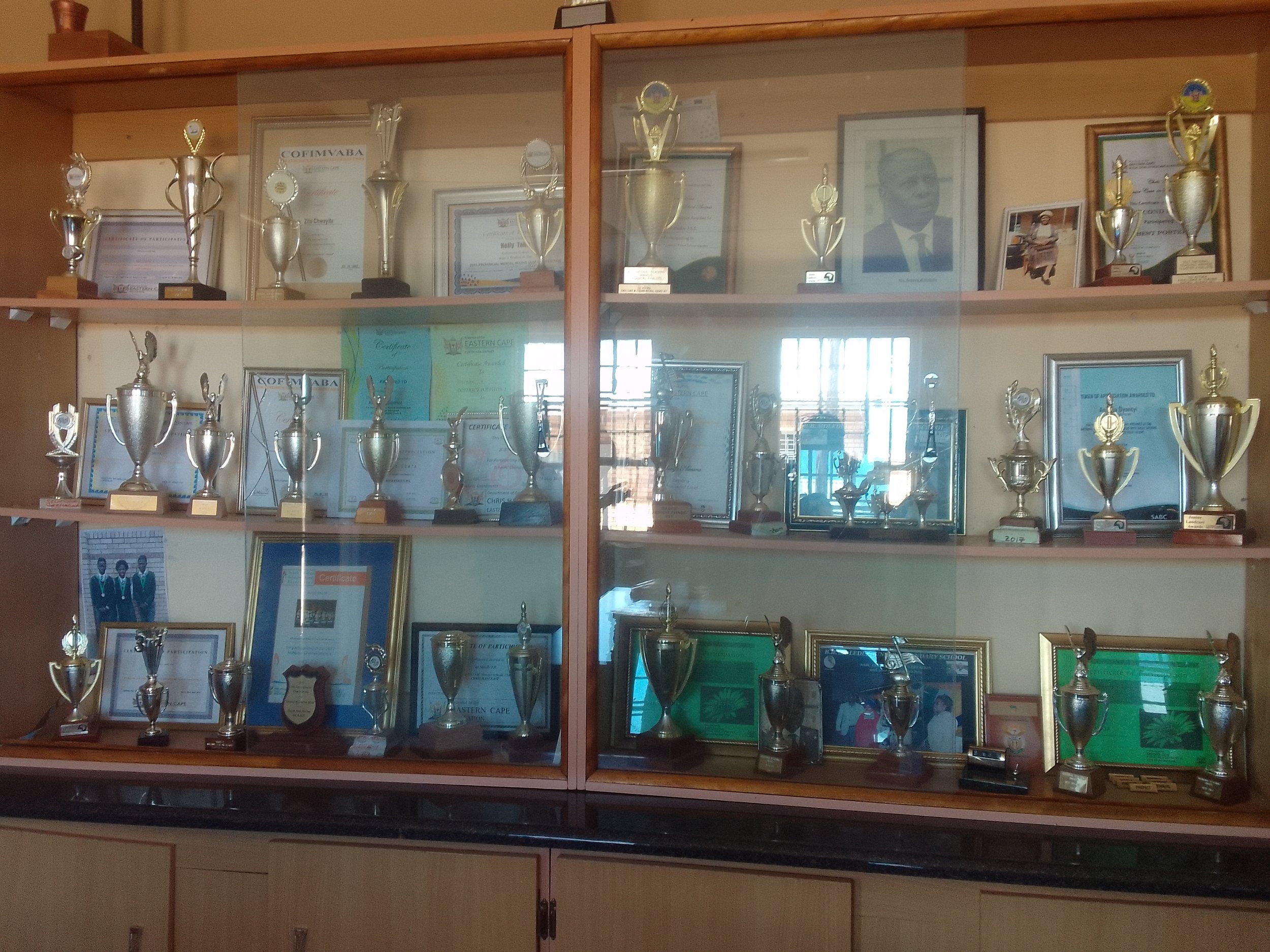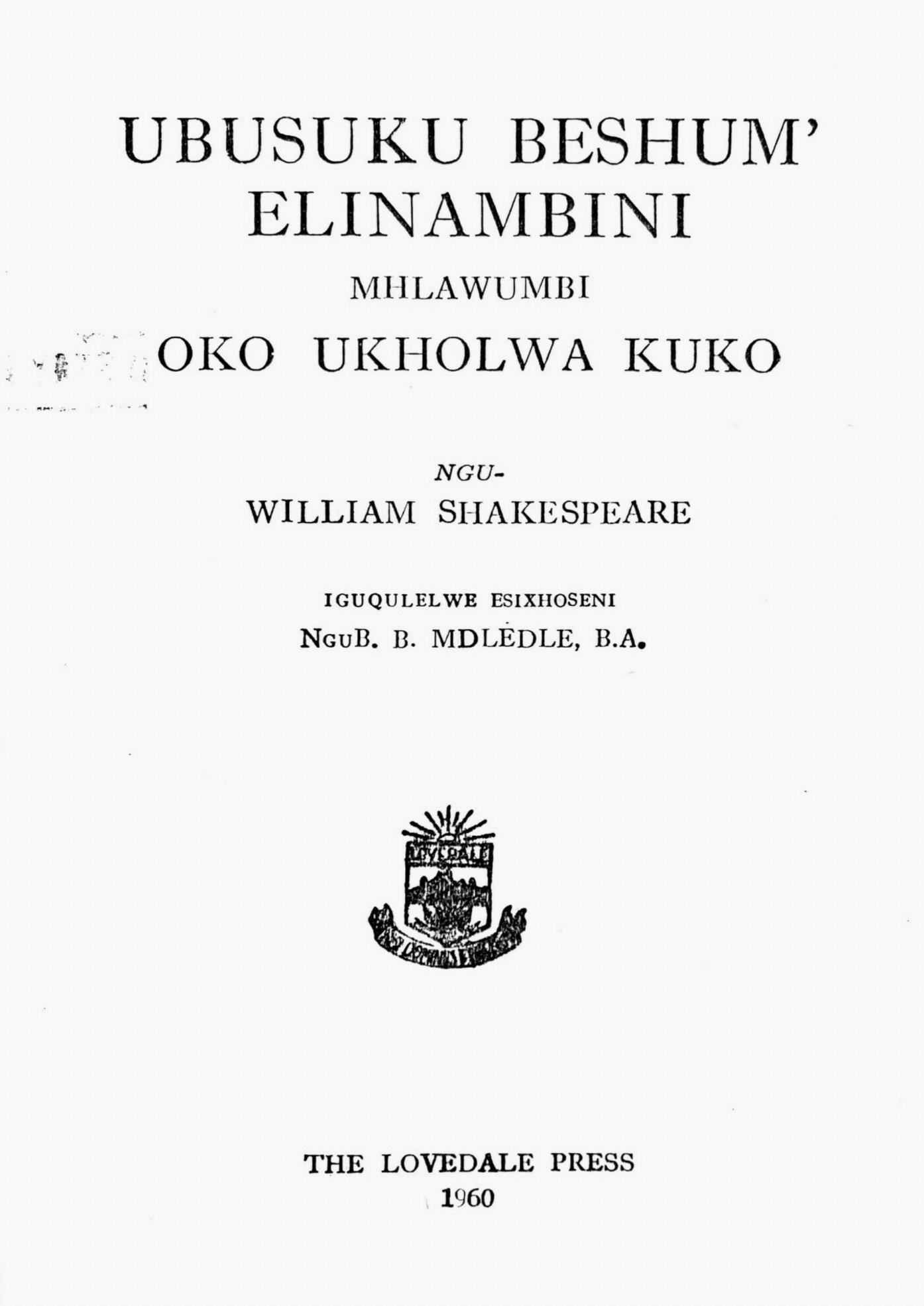Renewed encounters: K.E. Masinga and B.B. Mdledle
The first week in March saw significant developments for the Tsikinya-Chaka Centre’s “Lives of the Translators” project and for the Sol Plaatje Archive of Shakespeare in African Languages (SPASAL). While TCC Director Chris Thurman was burrowing away in the Johannesburg City Library, preparing the isiZulu Shakespeare translations of K.E. Masinga for digitisation, TCC affiliate and doctoral researcher Zwelakhe Mtsaka travelled to the village of Cala in the Eastern Cape to engage with the legacy of isiXhosa translator B.B. Mdledle.
K.E. Masinga in studio
The Johannesburg City Library under renovation
uMacbeth (radio play script)
For decades, the voice of King Edward Masinga was broadcast into the homes of South Africans. In 1941, he was the first radio announcer to read the news in isiZulu. He played a key role in the development of radio plays, which often subverted the apartheid government’s intention to use African language broadcasting as a form of propaganda. Among his accomplishments, Masinga translated numerous Shakespeare plays into isiZulu radio dramas in the 1950s. The only recording that survives in the South African Broadcasting Corporation archives is Masinga’s much-quoted rendition of Antony’s funeral oration from Julius Caesar (“Zihlobo, Bakwethu, maRomani . . .”) but fortunately there are copies of six of his Shakespearean radio play scripts in the Johannesburg City Library.
This venerable building has been closed to the public for much of the past three years - first because of Covid and then for renovations, which are ongoing - but the Library’s staff generously allowed the TCC access to the Masinga material and to various other African language translations in its collection. These have now been digitised and will soon be available as part of SPASAL.
Another key figure in the history of South African Shakespeare translation is Bennett Best Mdledle, a writer and educator who is less well-known than Masinga but whose isiXhosa translation of Julius Caesar was equally influential in the 1950s and 1960s, when it was prescribed as a set work at many schools for black children in the Eastern Cape. The relationship between Shakespeare translations into African languages and the pernicious “Bantu Education” policy is a complex one, but it is telling that veteran South African actor John Kani recounts how he was so inspired by Mdledle’s version of the play that when he later read Shakespeare’s original he found it to be far inferior! (Kani also narrates how the apartheid authorities prescribed Julius Caesar to warn black schoolchildren about the dangers of revolution, but that his own teacher used Mdledle’s translation as a means to encourage his students to resist oppression.)
Mdledle’s family members believe that his contributions to South African education, literature and culture have not been adequately recognised. Zwelakhe Mtsaka visited Mdledle’s daughter, Mrs Mdi, at the family homestead in Cala - where the local school is named after Mdledle, and where the community still bears his imprint - to learn more about the man, his life and his work.
Zwelakhe Mtsaka inspects B.B. Mdledle’s bookcase; photos and memorabilia displayed in the Mdledle family home; the title page of Mdledle’s 1960 translation of Twelfth Night.
